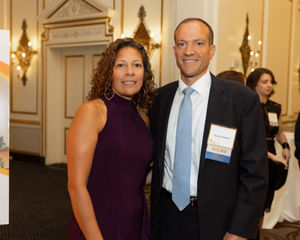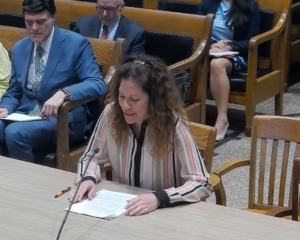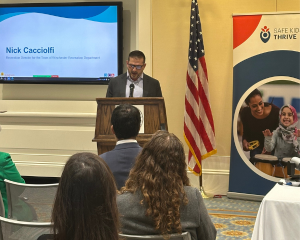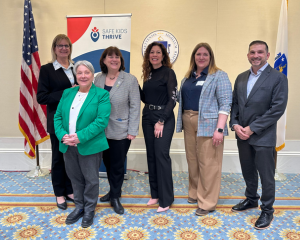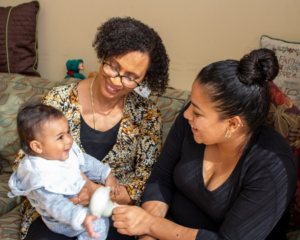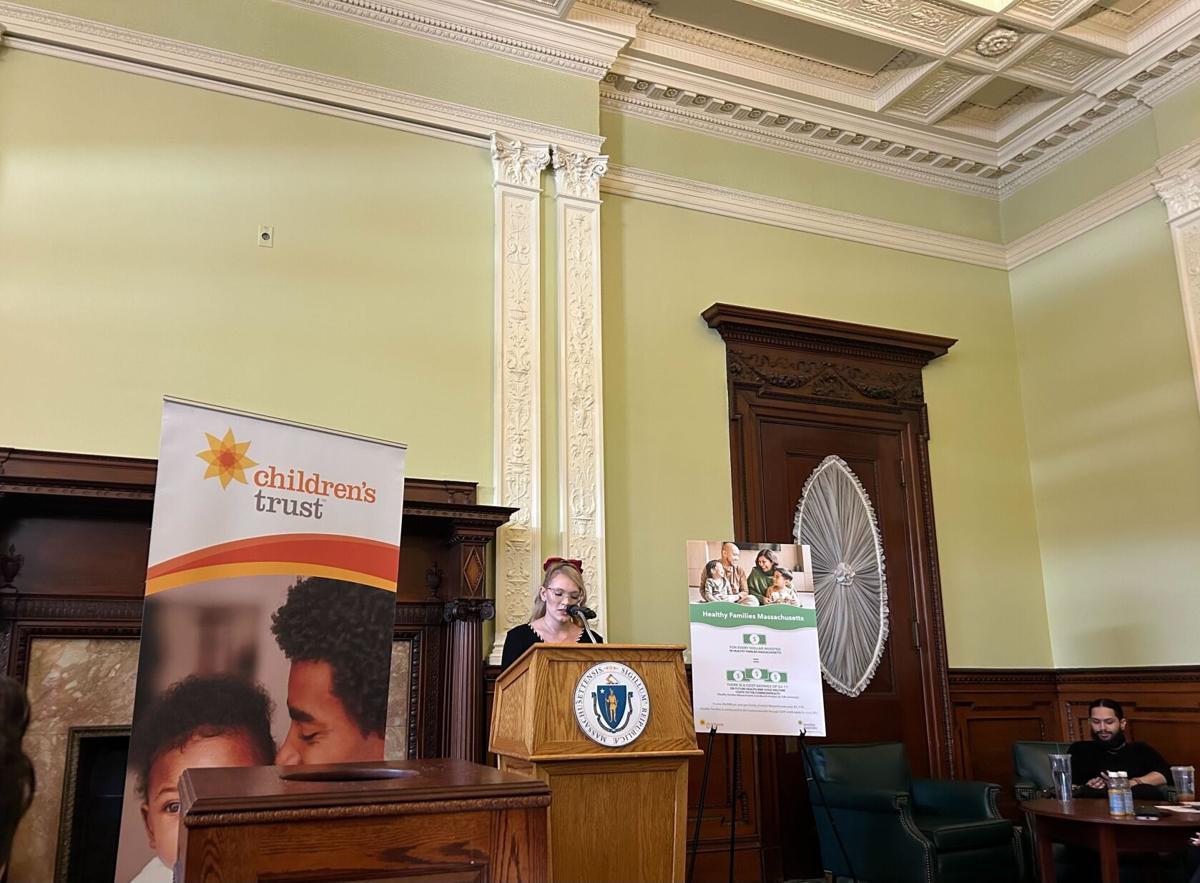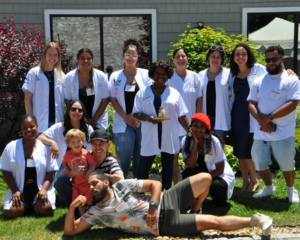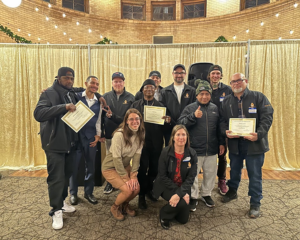Research shows that children benefit in powerful and lasting ways when their fathers are present and engaged in their lives. Father involvement is associated with improved cognitive development, social skills, independence, and academic achievement. Children with involved dads tend to have higher self-esteem, better peer relationships, and more prosocial behaviors. Even in the earliest days of life, a father's presence can make a life-or-death difference: infant survival is four times higher in the first 28 days when fathers are involved. But it’s not just children who benefit. Fathers themselves experience better health outcomes, greater income, and higher life satisfaction when they are active participants in parenting.
At the Children’s Trust, we believe that fatherhood is central to strong families and thriving communities. Through our Fatherhood Initiative, we’ve spent decades supporting fathers and elevating their role in child development. We also work with family support workers to integrate father-friendly practices into programs and outreach.
Here are four ways to engage fathers in your work:
1. Invite Fathers In
Sometimes, it’s just that simple. From the first point of contact, make sure to actively include fathers.
- Use inclusive language and imagery on materials and social media posts
- Invite dads to prenatal visits, parenting programs, and home visits
- Offer events specifically for dads, like meet ups, playgroups, or activity nights
- Ask moms, “Can we reach out to dad, too?” and normalize their involvement
Healthy Families home visitor and former program participant, Serenity Smith, shared how her home visitor engaged her husband:
“When our daughter was born, my husband was nervous and unsure of how to interact with our baby, but Crystal [home visitor] helped him find his way. She got him a DCR pass so he could take our daughter outdoors, something he loved. She brought activities for them to do together and taught him about the importance of bonding with her. Because of our home visitor, he gained the confidence to be the engaged, loving father he is today. Eventually, he even signed up for the Healthy Families program himself and he was more of a hands-on father when our son was born about 2 years later after we graduated from the program.”
2. Learn From Your Peers
You’re not alone in this work. Learn what’s already working for others and share your recent successes.
- Attend a Fathers & Family Network* meeting in your area
- Bring a colleague and brainstorm how to apply one idea to your setting
- Share a success story (big or small) about engaging a dad
*The Fathers & Family Network (FFN) was created in 1996 and has since been recognized as both a statewide and national program model. The Children's Trust provides funding to local agencies and organizations to convene FFN meetings in several locations across the Commonwealth. These meetings provide opportunities for family support workers to engage with their peers, share ideas, and learn how to formally and informally engage fathers in the work.
3. Celebrate and Nurture Healthy Fathering
Support programs that help fathers grow into their parenting role and build confidence.
- Refer dads to a local Nurturing Fathers program
- Encourage dads already involved in your program(s) and ask them how they’d like to be engaged
- Share stories that spotlight strong, present dads and how they got there
The Children’s Trust partners with state and community agencies to bring the Nurturing Fathers Program to Massachusetts communities. The program is a 13-week, strength-based parenting group that helps fathers build and strengthen positive parenting attitudes and behaviors. Each week, participants develop effective skills for healthy family relationships and child development.

Hampshire County House of Corrections Nurturing Fathers Graduates | December 2024
The Children's Trust and the Hampshire County Sheriff's Office are celebrating 10 years of partnering to bring Nurturing Fathers to incarcerated fathers. The first cohort of dads graduated in 2016 and the program was so successful that in 2019, they expanded it into the community so that dads transitioning back into the community continued to receive support. Now, they offer Nurturing Fathers groups at the Northampton Recovery Center in addition to the program offered through the jail. Since the partnership began, more than 150 fathers have graduated from the program, and of the 99 who took the course while incarcerated, only three have returned to the Hampshire County Jail and House of Correction.
4. Include Fatherhood-Specific Training in Your Curriculum
Build father engagement strategies into your family support foundation.
- Schedule annual training on father engagement for your team
- Offer ongoing tools like facilitation guides or discussion prompts for fatherhood groups
- Add father-specific engagement strategies into your onboarding and coaching process
The Children’s Trust offers training, curricula, and technical assistance to help organizations across Massachusetts build more inclusive, father-centered programs. From trainings on engaging men to tools for facilitating fatherhood groups, we’re here to help. Learn more about our training opportunities.
Family Support Work That Includes Fathers Is Stronger Support
A study from the Urban Leadership Institute found that 90% of homeless and runaway youth, 71% of high school dropouts, and 85% of youth who exhibit behavioral disorders come from a fatherless home. Conversely, research links father involvement to numerous benefits for children and families from maternal and infant health to nearly every measure of child wellbeing. A study from the U.S. Department of Education found that highly involved fathers have children who are 33% less likely than other children to repeat a grade and are 43% more likely than other children to earn mostly A’s.
By engaging fathers as partners in parenting, we strengthen families and communities. We reduce stress on mothers, improve overall family wellbeing and long-term outcomes for kids, and help men find purpose and pride in fatherhood. It’s time to make father involvement not an add-on, but a central part of how we support families.
To learn more about how to bring father-friendly practices into your work, visit childrenstrustma.org/fatherhood.






